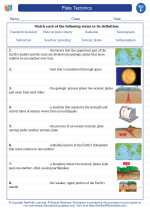Effects in Science
In science, the term "effect" refers to the result or consequence of an action or phenomenon. Understanding cause and effect relationships is a fundamental aspect of scientific inquiry and critical thinking. Effects can be observed in a wide range of scientific disciplines, from physics and chemistry to biology and environmental science.
Cause and Effect Relationships
Understanding cause and effect relationships is essential for making predictions, testing hypotheses, and drawing conclusions in science. When a change occurs in a system or when an event takes place, it can lead to various effects. Identifying and analyzing these effects helps scientists gain a deeper understanding of the natural world.
Examples of Effects in Science
1. Chemical Reactions: When two or more substances react chemically, they produce new substances with different properties. These new substances are the effects of the chemical reaction.
2. Environmental Impact: Human activities such as deforestation, pollution, and climate change have significant effects on ecosystems and the environment. Studying these effects is crucial for understanding and mitigating environmental damage.
3. Biological Processes: In living organisms, various processes and stimuli can lead to specific effects. For example, exposure to a pathogen can result in an immune response as the body attempts to fight off the infection.
Study Guide
When studying the concept of "effect" in science, consider the following key points:
- Define the term "effect" and provide examples from different scientific fields.
- Discuss the importance of understanding cause and effect relationships in scientific inquiry.
- Explore how changes in one variable can lead to various effects in a system or process.
- Analyze real-world scenarios to identify and understand the effects of natural phenomena, human activities, and technological advancements.
- Consider the ethical and societal implications of certain effects, such as the impact of scientific innovations on human health and the environment.
By mastering the concept of "effect" in science, you will develop a deeper appreciation for the interconnectedness of natural phenomena and the importance of considering both the immediate and long-term consequences of actions and events.
[Effect] Related Worksheets and Study Guides:
.◂Science Worksheets and Study Guides Sixth Grade. Plate Tectonics
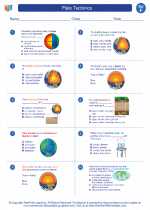
 Worksheet/Answer key
Worksheet/Answer key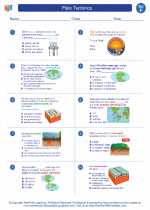
 Worksheet/Answer key
Worksheet/Answer key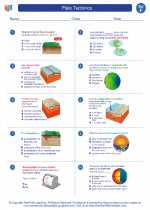
 Vocabulary/Answer key
Vocabulary/Answer key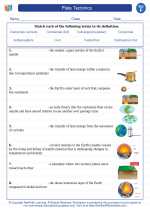
 Vocabulary/Answer key
Vocabulary/Answer key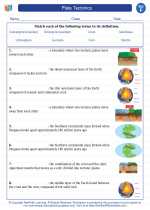
 Vocabulary/Answer key
Vocabulary/Answer key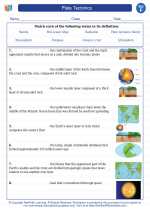
 Vocabulary/Answer key
Vocabulary/Answer key